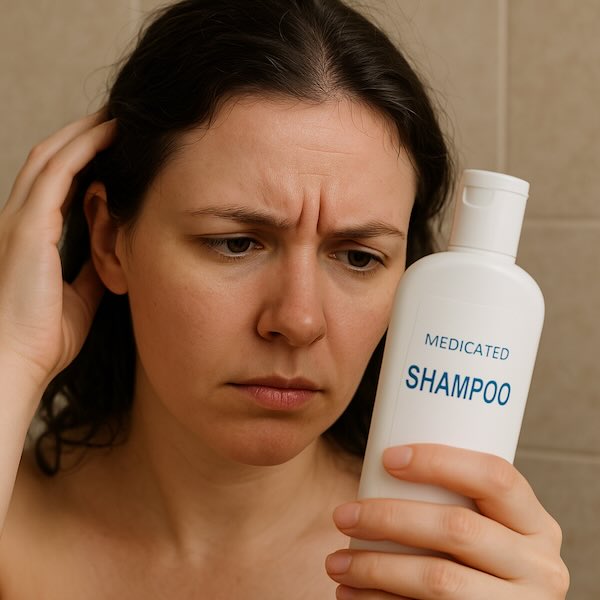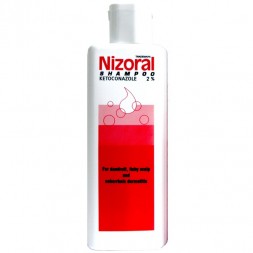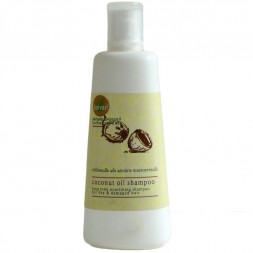
Many people dealing with dandruff or fungal scalp infections wonder if they can safely use Nizoral Shampoo 2% daily. After all, it effectively eliminates flakes and itching quickly—so why not use it every day?
While Nizoral Shampoo is gentle and safe, dermatologists generally don't recommend daily use. Understanding the right usage frequency is crucial to ensuring you achieve optimal results without drying out or irritating your scalp.
Let's explore expert recommendations on how often you should use Nizoral Shampoo and why daily use might not be your best option.
Why Nizoral Shampoo is Different from Regular Shampoo
Nizoral Shampoo 2% contains ketoconazole, a powerful antifungal ingredient specifically designed to treat scalp conditions like seborrheic dermatitis and persistent dandruff caused by fungal overgrowth.
Unlike standard shampoos—which cleanse the scalp and hair superficially—Nizoral targets the underlying fungal cause of dandruff, providing lasting results rather than temporary relief. Because of this targeted action, it doesn't need daily application to be effective.
Recommended Frequency for Using Nizoral Shampoo
Dermatologists typically recommend a two-stage approach to using Nizoral Shampoo effectively:
Stage 1: Initial Treatment Phase
Initially, you should use Nizoral Shampoo two times per week. During this intensive treatment period, usually lasting two to four weeks, the shampoo rapidly reduces fungal populations, controlling dandruff and irritation.
For best results:
-
Apply shampoo to a wet scalp.
-
Massage gently but thoroughly.
-
Leave the shampoo on your scalp for three to five minutes before rinsing.
Stage 2: Maintenance Phase
Once your scalp symptoms improve, reduce shampooing frequency to once per week or even every two weeks. This maintenance schedule prevents dandruff recurrence while keeping your scalp comfortable and hydrated.
Why Daily Use Isn’t Recommended
While Nizoral Shampoo is safe, daily usage is generally unnecessary and can lead to undesirable effects:
1. Excessive Scalp Dryness
Ketoconazole, although effective, can cause dryness if used too frequently. Daily washing may strip your scalp of natural oils, resulting in increased dryness or irritation.
2. Potential Scalp Irritation
Frequent exposure to any medicated shampoo can irritate sensitive scalps, causing redness, discomfort, or inflammation. If your scalp feels irritated after shampooing daily, reduce the frequency immediately.
3. Reduced Cost-Effectiveness
Using Nizoral Shampoo daily won't significantly improve your results but will quickly use up the product, reducing cost-effectiveness without added benefit.
Signs You're Using Nizoral Shampoo Too Often
Be alert for these signs of overuse:
-
Increased dryness or tightness of your scalp.
-
Scalp redness, irritation, or unusual sensitivity.
-
Hair feels excessively dry, brittle, or difficult to manage.
If you notice these symptoms, decrease shampoo usage immediately and consider adding a moisturizing conditioner or gentle shampoo alternately.
Can You Combine Nizoral Shampoo with Other Shampoos?
Yes—combining Nizoral Shampoo with gentle moisturizing shampoos or conditioners on alternate days is beneficial. This approach allows you to enjoy daily scalp cleansing while effectively managing fungal overgrowth and dandruff.
For particularly stubborn scalp patches or severe dandruff, complementing shampoo treatment with Nizoral Cream can enhance your overall results. Browse our complete range of scalp treatments on the Nizoral Shampoo page.
How to Safely Alternate Nizoral Shampoo
Follow these guidelines to alternate effectively:
-
Use Nizoral Shampoo twice weekly initially, decreasing to weekly once your symptoms improve.
-
On non-Nizoral days, use a gentle moisturizing shampoo or conditioner to keep your scalp and hair healthy.
-
If your scalp becomes dry or irritated, reduce shampoo frequency further or alternate with conditioning treatments.
Additional Tips for Healthy Scalp Care
Maximize your results by incorporating these scalp-care tips:
-
Wash with lukewarm water; excessively hot water can irritate your scalp.
-
Avoid aggressive scalp scrubbing; gentle massage is sufficient.
-
Thoroughly rinse shampoo residues to prevent irritation.
-
Regularly clean combs, hats, and pillowcases to minimize fungal exposure.
When Should You Consult a Dermatologist?
If symptoms persist despite using Nizoral Shampoo according to recommendations—or if your scalp irritation significantly worsens—consult a dermatologist. Persistent or severe symptoms might indicate underlying issues requiring prescription-strength treatment or additional medical evaluation.
Balance is Key
Nizoral Shampoo provides powerful, targeted relief from dandruff and fungal scalp infections without the need for daily use. Following expert recommendations and balancing shampoo frequency ensures effective management of dandruff and scalp health, avoiding unnecessary side effects like dryness or irritation.
If you're currently dealing with persistent dandruff, consider Nizoral Shampoo 2% your reliable ally—use it correctly, and enjoy lasting relief.
Ready to start your journey toward a healthier scalp? Visit our dedicated Nizoral Shampoo section and discover the relief you deserve.





